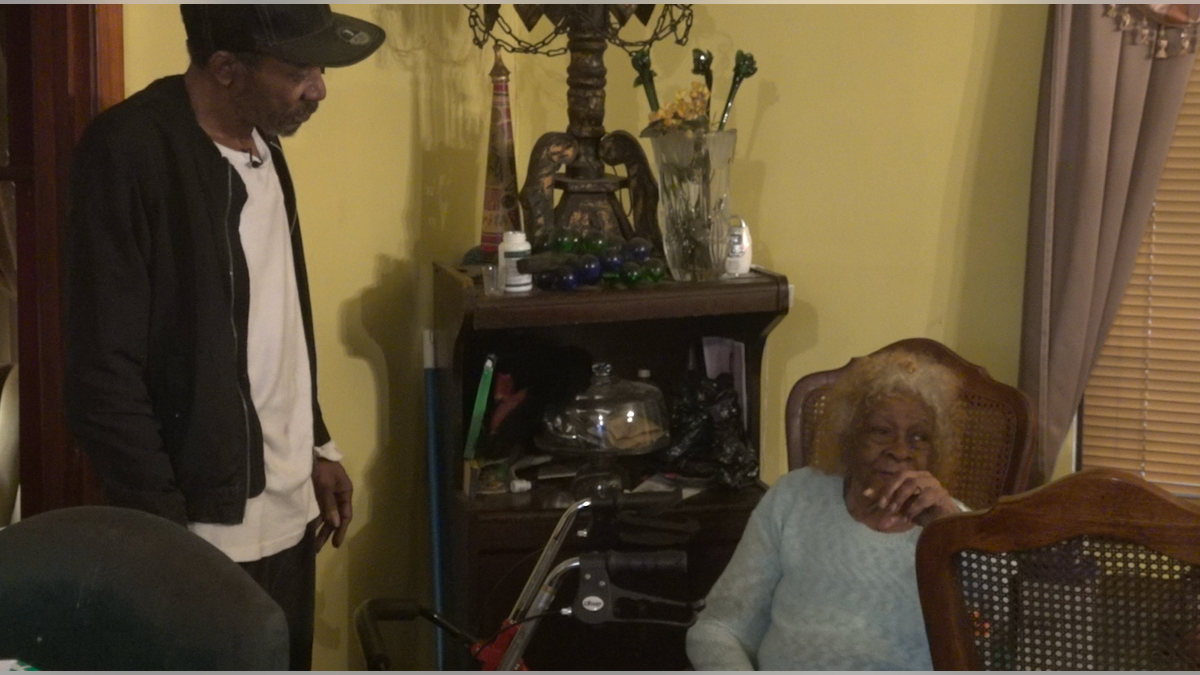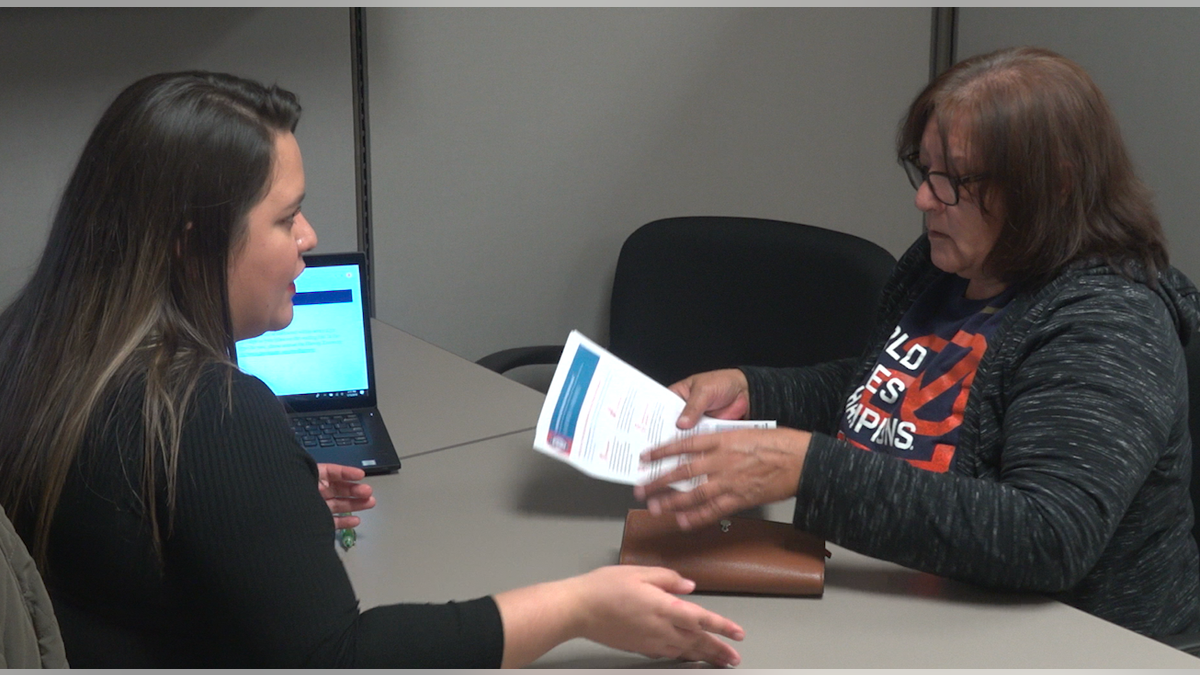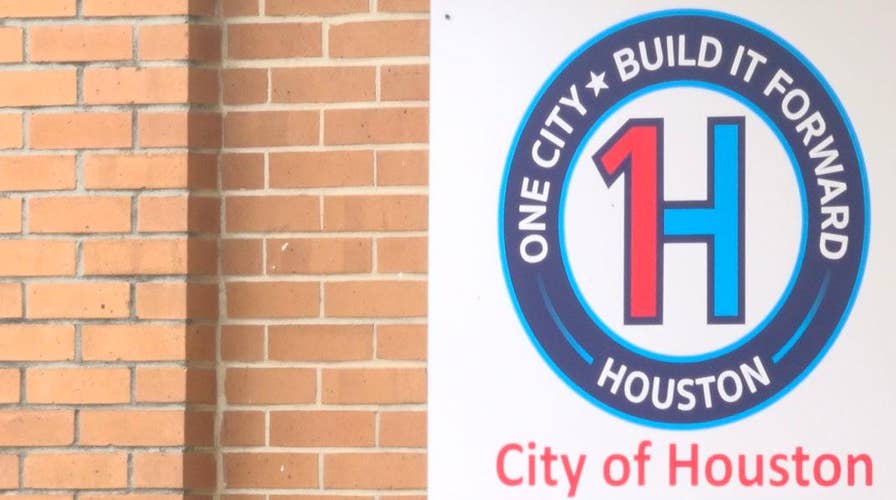Houston unveils housing help for Harvey victims
Victims who did not get help from FEMA say this is their last option
HOUSTON -- It’s been nearly a year and half since Hurricane Harvey devastated this Texas city. Yet, many victims say they are nowhere close to full recovery.
“I’m in limbo. I’m in like a twilight zone right now,” said Malbrth Moses.
Moses’ home was destroyed by the storm. Mold and water stains mark the walls of the house he shares with his 95-year-old mother. The foundation, he says, shifted after it was flooded.
“Our backyard got so saturated that the house started sinking. You can see the house leaning forward,” he said.
CLICK HERE TO GET THE FOX NEWS APP
Moses said a FEMA inspector examined the damages, but because they were deemed as “pre-existing,” they did not qualify for aid. They spent $5,000 out of pocket to make some necesary repairs.
Still, it’s far from what they need. Because Moses can’t work due to mesothelioma, money is tight.

Malbrth Moses (left) and his 95-year-old mother (right) are one of many Houstonians still recovering after Hurricane Harvey. Moses says their home is far from being completely repaired. (Fox News)
“We don’t have any more funds trying to get anything done here. So, right now, I don’t know what the next step would be,” he said.
Many Harvey victims who were shut out of FEMA funding now could be eligible for federal dollars the state received through the Department of Housing and Urban Development. While FEMA is an immediate stopgap for hurricane victims, the agency has stringent restrictions that critics say leave many victims out to dry.
But almost two years later, that state is doling out additional funding it received last February that will provide relief for some victims who felt left out of recovery funds.
Last week, the city opened four recovery centers to teach people about homeowner assistance programs, made possible through a $1.17 billion federal package.
“What’s happening now is the money has arrived,” said Tom McCasland, director of Housing and Community Development.
The funds are part of a $5 billion package that HUD allocated to Texas after Harvey hit. The state’s General Land Office distributed more than $1 billion to Houston and another $1 billion to Harris County last February -- but it took a year for the application and approval process to take shape, locals officials said.
“FEMA’s in charge of the short-term housing recovery. But, HUD has traditionally overseen the long-term housing recovery. And for Hurricane Harvey, this is the first funding from HUD for the long-term recovery,” said McCasland.
Hundreds have stopped by the recovery centers since they opened.
Moses is one of those hoping to qualify for the programs, which include reimbursements for completed repairs, rehabilitation and reconstruction, and buyouts.

Last week, the city opened four recovery centers to provide federal aid for homes damaged by Harvey. (Fox News)
“To a certain point, it gives me some type of comfort because they’re trying to do something for some,” said Moses.
Moses said he had been losing hope.
“In the time period it’s taking right now, you’ve got people on the street that have nowhere to go. Houses are still damaged, haven’t been torn down, haven’t even started to be repaired,” he said.
McCasland noted, however, that while the wait seems long, it's actually shorter than the wait time for other recovery efforts.
“We are still waiting to get our money for disasters that occurred in 2016. Here, in perspective, this is a rapid timeline," McCasland said. "But for people who have been waiting, this is far too long.”

Houston received $1.17 billion for recovery assistance through the U.S. Department of Housing and Urban Development and the state's General Land Office. But, experts say it's still short of what the city actually needs. (Fox News)
He said the area is still hoping to get additional funding.
“We think that the real money is closer to $3 billion for a full recovery. We’re still working with federal officials and our elected officials to make sure they understand that,” he said.
For now, Moses said the recovery programs are, at least, something. Before finding out which program he qualifies for, however, he’ll have to keep waiting.
“I’m just going to keep fighting and keep going back and forth to see what I can get [done],” he said.











































